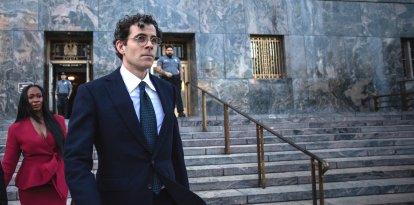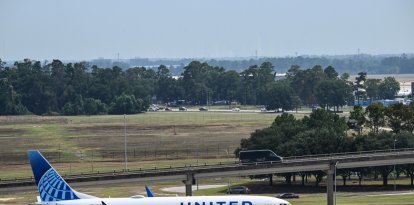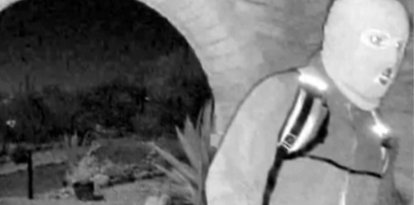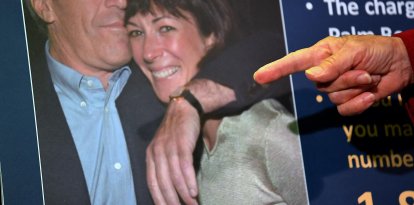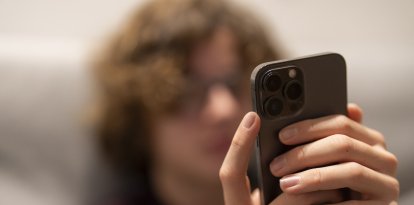While police arrest pro-Hamas protesters at NYU, Columbia authorities do not want officers on campus
New York was practically the epicenter of antisemitic demonstrations at universities.
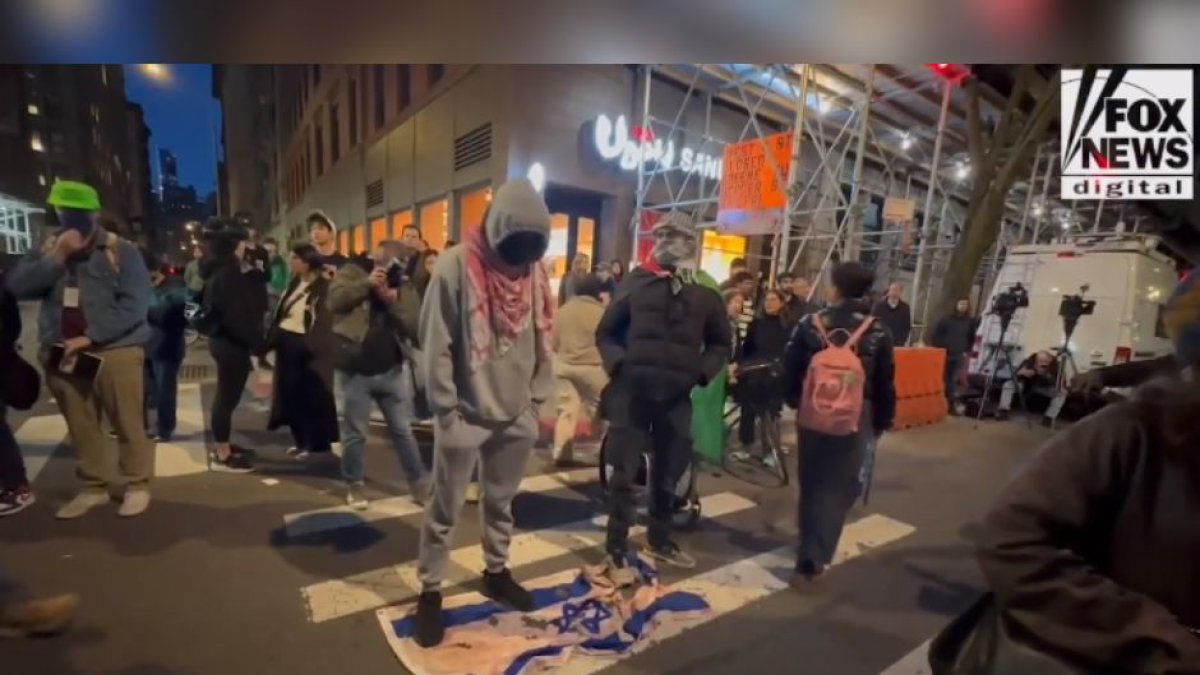
Un manifestante antisemita pisa una bandera israelí en Nueva York. (Captura Fox News)
While antisemitic protests intensify in the country's leading universities, in New York, the situation is increasingly tense and violent.
At New York University (NYU), the city's police department had to make a series of arrests for trespassing in the self-proclaimed "liberated zone" of Gould Plaza, where antisemitic protesters set up illegal camps that disrupted public order, according to authorities.
"This is the New York City Police Department," an officer says over a loudspeaker. "You have been warned by New York University to leave the area. Please leave the plaza now or you will be arrested for trespass."
While the police were removing the tents and arresting the antisemitic protesters who were transferred to correctional buses, other protesters confronted the officers, and some formed a circle around the shops installed in Gould Plaza, forming a human chain that was finally dissolved by the authorities.
The New York City Police Department has already taken down the tents at the camp, and there has still been no official statement from NYU as to who ordered the arrests.
After managing to control the situation at NYU, it was reported that hundreds of pro-Palestine protesters were moving towards the NYPD headquarters, shouting "Gaza."
However, just as the New York Police Department controlled the situation at NYU, the opposite happened at Columbia, as university authorities preferred that officers not have access to the university campus.
In a press conference this Monday, the deputy commissioner of the New York police, Michael Gerber, detailed that Columbia University is private property. Therefore, the police can only enter the campus if an explicit crime is being committed or if someone is in danger.
"If someone is, for example, who is being attacked, we're going to go in to Columbia University, as we would to a private home to help protect that person," Gerber explained. "But absent exigency, absent some ongoing crime, we cannot just go on the Columbia campus as we see fit. It is up to the university to decide whether or not they want us on campus. As a general matter, Columbia University and this goes back many years, does not want NYPD present on campus. That is their decision."
Gerber's words come at a time when the Columbia campus is taken over by a massive anti-Israel protest with antisemitic and pro-terrorist chants that have raised serious concerns for the safety of Jewish students.
Last Thursday, just one day after Columbia's president, Dr. Nemat Shafik, went to the House Education Committee to account for rampant antisemitism at the Ivy League school following the October 7 terrorist attacks, the university informed the police that students were invading the campus.
In this exceptional situation, Gerber explained that the Columbia authorities requested law enforcement action, which resulted in more than 100 arrests.
"But that was an exceptional case in the normal course. They've made clear that we're not to be there," Gerber said.
"And so we're not there now around the university, in the streets, around the university, that's public property there. We have a very large police presence. And our officers obviously are going to take action to prevent crime and to make arrests if there is a crime."
Even though in-person classes were canceled this Monday at Columbia, Shafik, instead of ordering the dismantling of the antisemitic camp with police, promised that a "working group of Deans, university administrators and faculty members will try to bring this crisis to a resolution" in the coming days.
The president of Columbia also promised that the authorities would discuss the controversial protesters, who are damaging the university's public image.
In this way, Shakif explained, Columbia will demonstrate that it can reach peaceful solutions with its students without the need for police action.
"I know that there is much debate about whether or not we should use the police on campus, and I am happy to engage in those discussions," Shafik said. "But I do know that better adherence to our rules and effective enforcement mechanisms would obviate the need for relying on anyone else to keep our community safe. We should be able to do this ourselves."













